Garbage and etiquette when visiting Japan
In recent years, the issue of overtourism has become a problem all over Japan. 🌎 Among these issues, littering is a frequent topic of discussion on TV and social media in Japan. 😢 We’ll introduce the current state of trash cans in public places in Japan, the cultural factors behind this, and etiquette for foreign tourists to have a comfortable stay in Japan. ✨ Be sure to read this before your trip to Japan. 🙏


- The background and current situation of the lack of trash cans in Japan
- Fostering a culture of “taking your trash home”
- Trash Bin Guidelines for Foreign Tourists
- Japan’s garbage sorting rules and points to note
- A look at littering and a message to foreign tourists
- Collaborating for sustainable tourism 🙏
- summary
The background and current situation of the lack of trash cans in Japan
One thing that foreign tourists often find confusing in Japan is the very lack of trash cans in public places. This is not simply a case of “forgetting to install them,” but the result of a deliberate policy based on historical and cultural backgrounds.
Situation and problems before the 1990s
Until the 1990s, many trash cans were installed in train stations and parks in Japan. However, some people brought in trash from their homes and businesses, causing the cans to overflow, attracting crows and creating unsanitary conditions.
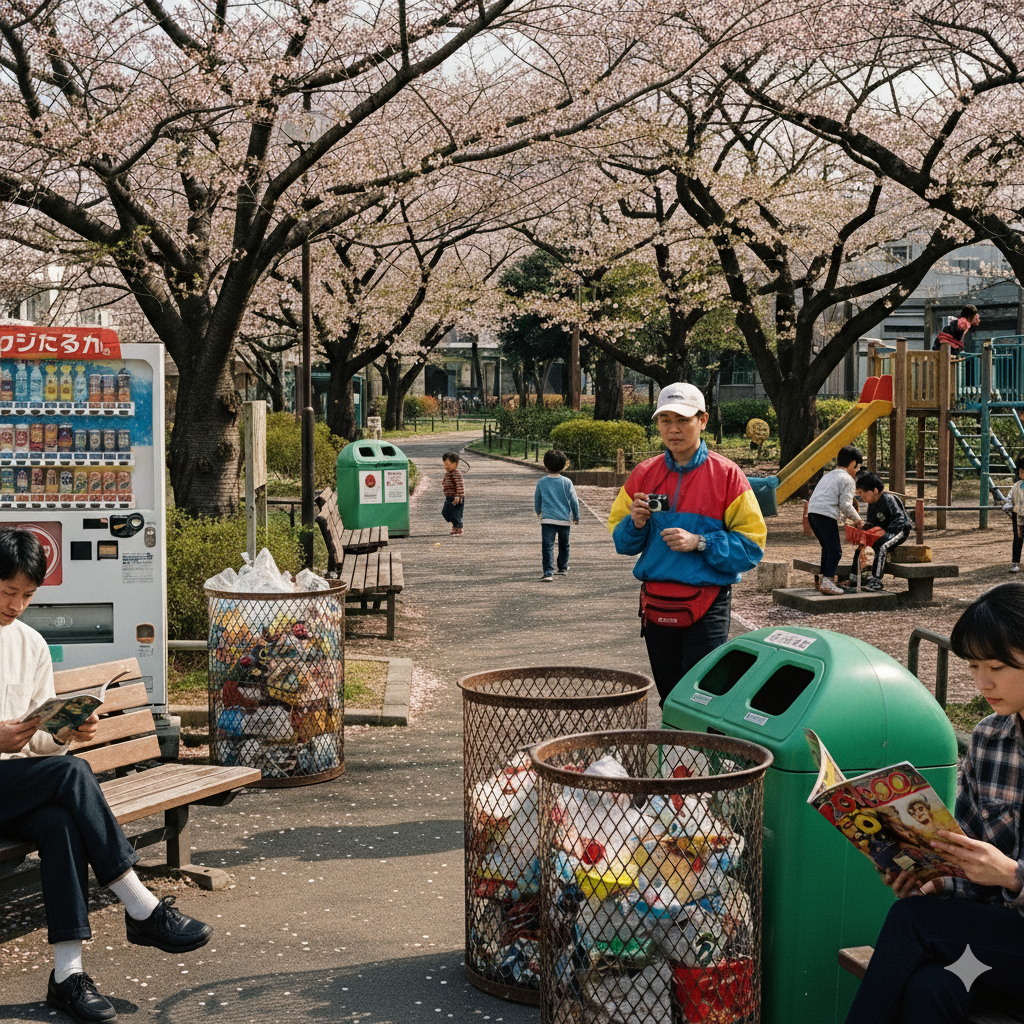
Policy changes since the 2000s
Influenced by terrorist attacks overseas, in the 2000s, many local governments implemented policies to intentionally reduce the number of trash bins available. 🗑️ Instead, the habit of “taking your trash home” was encouraged. 🚯It’s surprising that even after this change in policy, the majority of people still follow the rule.
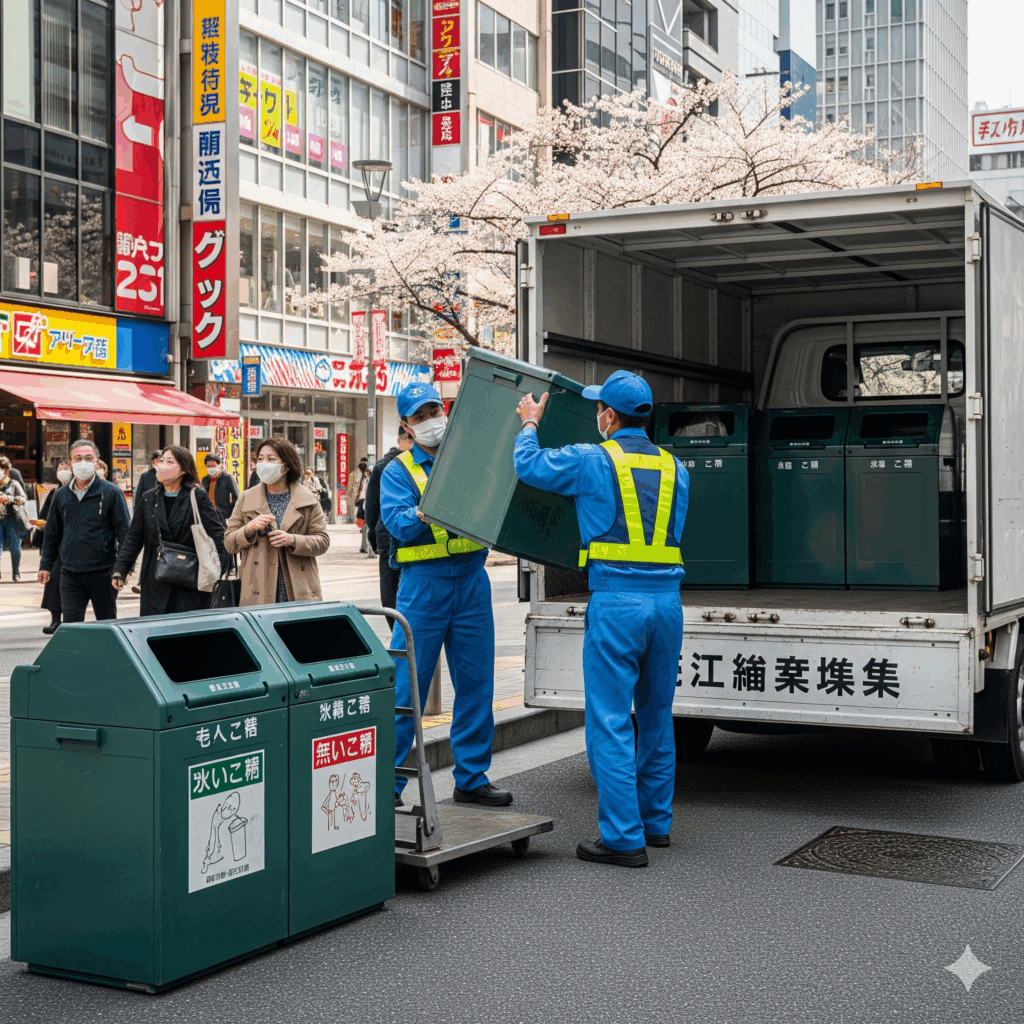
Fostering a culture of “taking your trash home”
Have you ever wondered why the counter-intuitive idea of reducing the number of trash bins works when trash is overflowing? It seems to be influenced by the unique educational foundations of Japan.
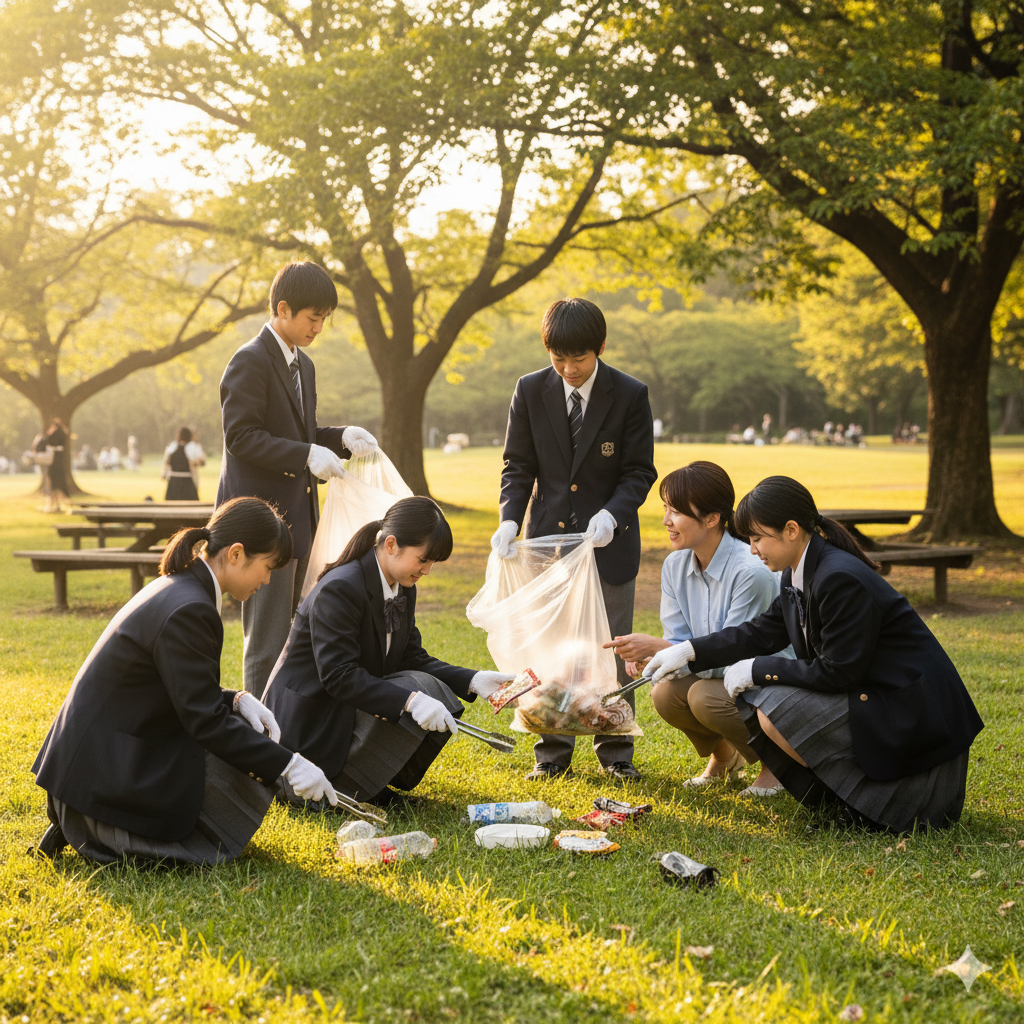
The impact of schooling👨🏫
“In Japanese schools, from elementary school onwards, there is a 20-minute cleaning period every day, during which students and teachers clean the entire school.” Furthermore, on field trips and other outings, the rule of “leaving the school cleaner than when you arrived” is thoroughly taught. This is an important lesson that fosters consideration for the next person who will use the school, by leaving the school cleaner than when you arrived.
Of course, there are some students who don’t listen, but the vast majority do as they’re told.


The impact of home education🏠
Many families also teach their children not to litter and to keep the streets clean, so it is believed that the habit of “cleaning up the places you use” is naturally acquired both at school and at home. Of course, there are regional differences, and as a result, there are people who do not follow the rules, but they are still in the minority.
As a result, many people have become accustomed to taking their own trash home with them, which is one of the reasons why the city remains clean despite the lack of trash cans.

Trash Bin Guidelines for Foreign Tourists
So, in Japan, where there are few trash cans, we will tell you how tourists should dispose of their trash in detail.
In-store pickup 🍟🌭
If you take the waste from purchased items back to the store where you purchased them, they will generally collect it smoothly.
If you politely ask, “Excuse me, could you please throw away this trash?” the store staff will help you.
※Watch this video to practice saying “Excuse me, could you please throw away the trash?” in Japanese!※
Transport and temporary storage
If you cannot return to the store where you purchased the item, or if you eat or drink something and end up with trash, the most efficient way to dispose of it is to put the trash in a plastic bag you brought with you and carry it with you until you find a trash can at a crowded place such as a train station, commercial facility, or convenience store.
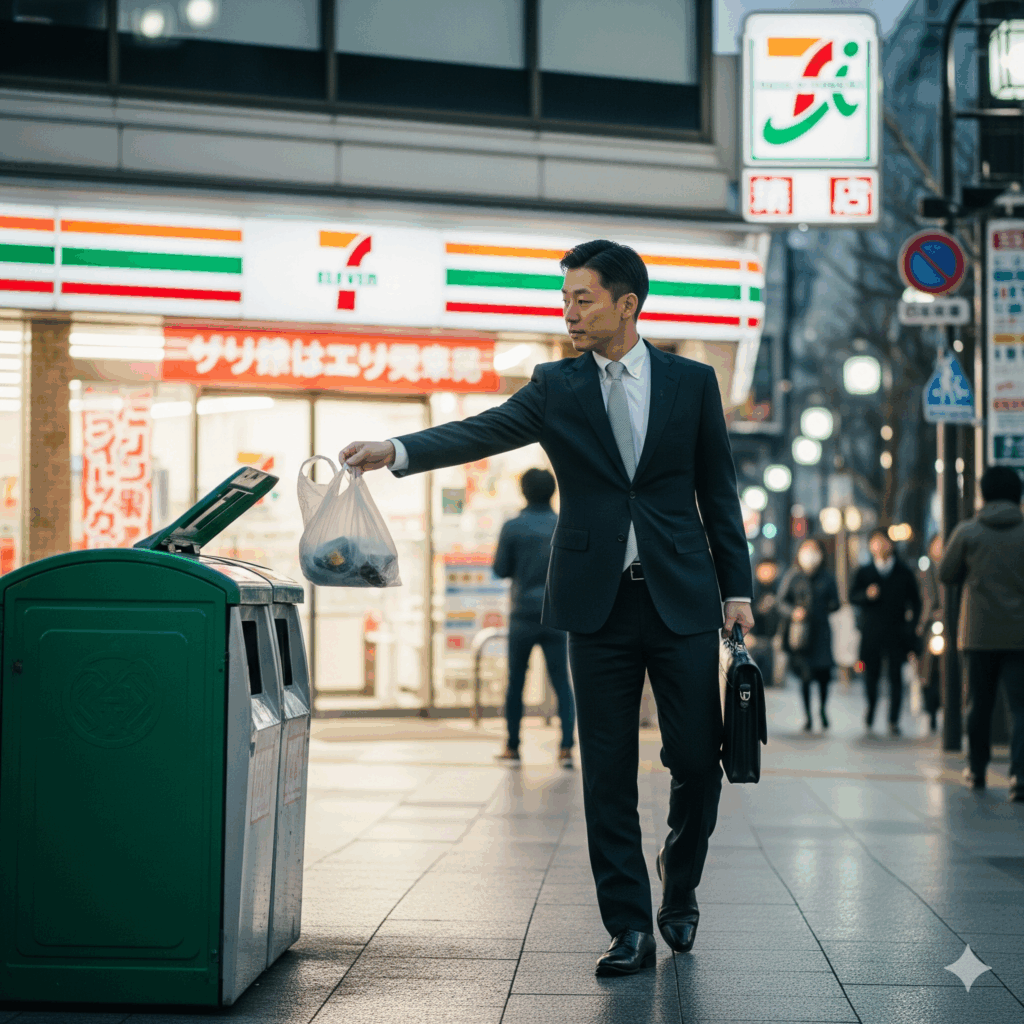
Option to take it back to the hotel and throw it away 🏨
This is a very Japanese way of thinking that is recommended. It’s important to think of it as lucky if you can find a trash can while sightseeing. The basic rule is to carry away any trash you produce!
Utilizing convenience stores🏪
Convenience stores often have trash cans, making them the easiest place to throw away trash.
However, since the trash is originally placed there for customers who have purchased something at the store, many people show their gratitude by buying gum, snacks, drinks, etc. when throwing away trash purchased at other stores. Think of it as a small tip.
It is also important to be aware that in large cities, even convenience stores often do not have trash cans.

Japan’s garbage sorting rules and points to note
Garbage sorting in Japan is complicated and varies by region and location, so please be careful.
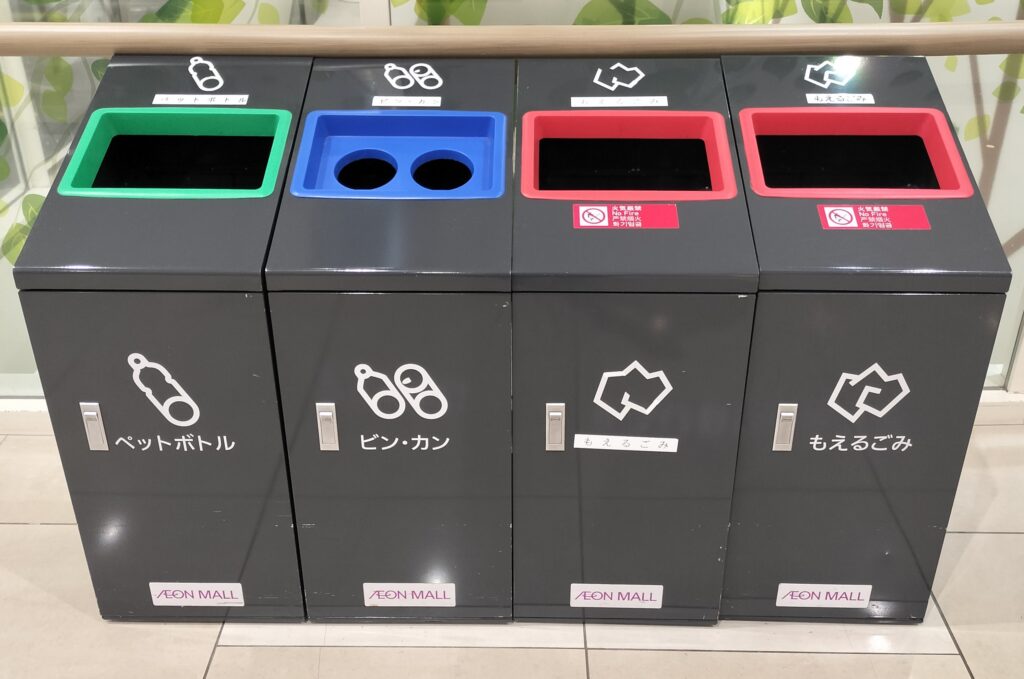
Basic sorting categories🗑️
Garbage is divided into categories such as “burnable garbage,” “non-burnable garbage,” “plastic bottles,” “glass bottles,” and “cans.”
The rules for sorting can vary slightly depending on the location, so it’s important to always check the signs. Some have pictures, while others are just written.
Specific examples and warnings
Supermarket trash can
The categories are often simple, such as “burnable garbage” and “non-burnable garbage,” and the openings may be small to prevent household garbage from being brought in.

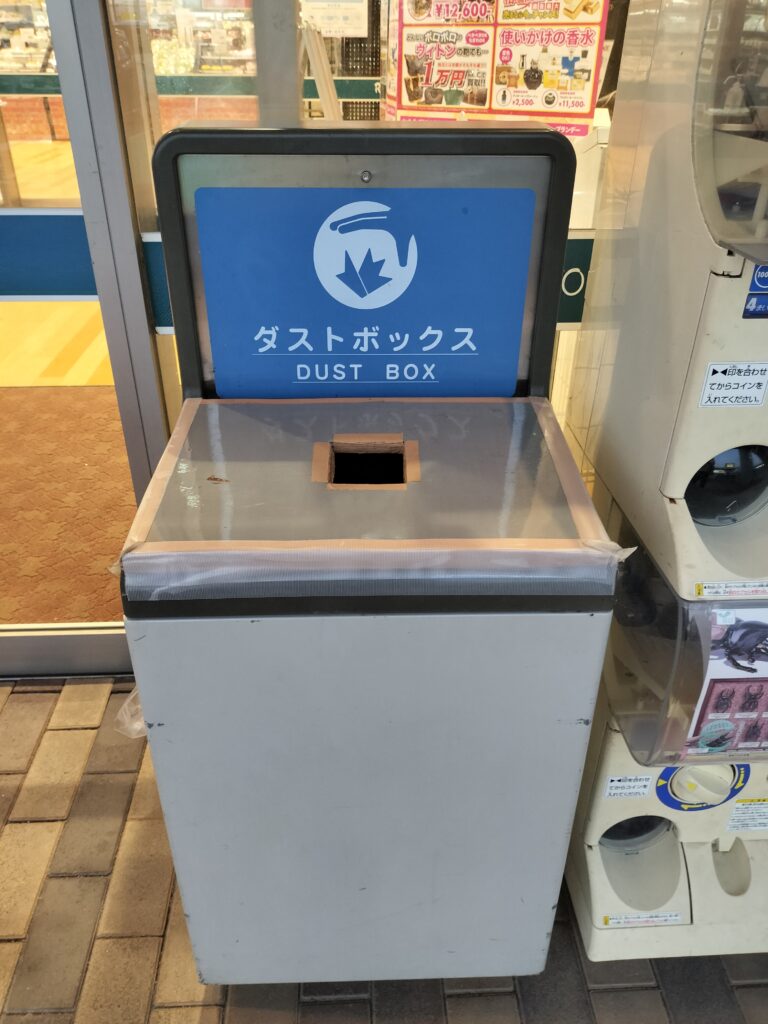
Convenience store trash can
Garbage is often separated into categories such as “burnable garbage,” “non-burnable garbage,” “plastics,” “PET bottles,” “cans,” “glass bottles,” and “paper waste/chopsticks.”

Plastics such as food packaging and lunch box containers are generally considered to be “burnable garbage,” but some stores have more detailed sorting rules. In those cases, you should throw them in the “plastics” bin.
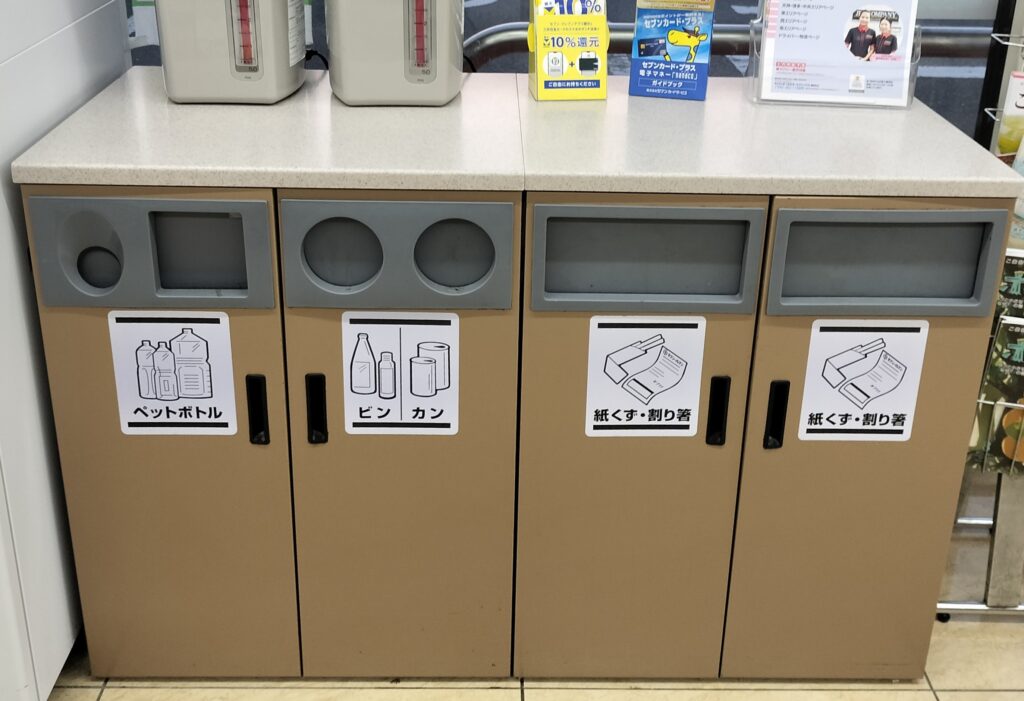
Shopping malls and food courts
Garbage is often divided into “burnable garbage,” “non-burnable garbage,” and “plastic.”
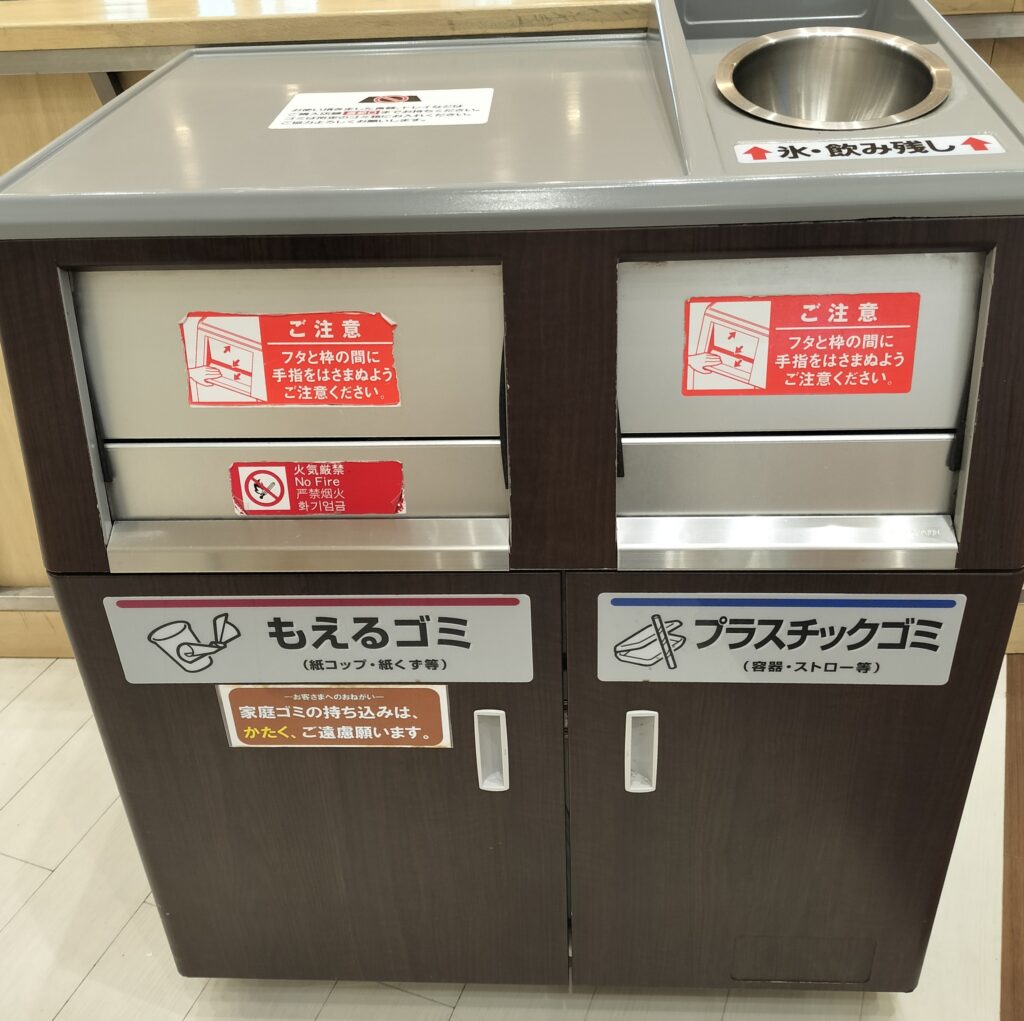
Dedicated container for leftover drinks and ice 🧊🧋
Food courts, airports, and cafes often have trash cans specifically for leftover drinks. Containers with liquid remaining in them are unsanitary, so be sure to empty the contents before throwing the container away. This is a consideration for the people who collect the trash.
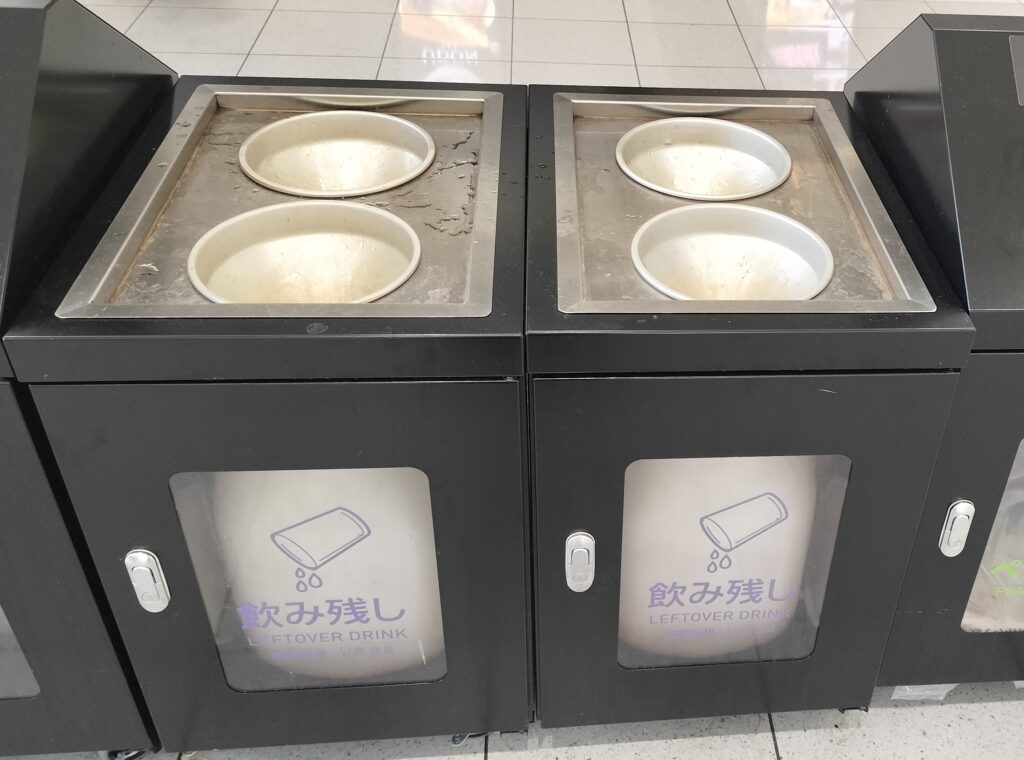
Trash can next to the vending machine
Please note that this is for cans, glass bottles, and plastic bottles only. If you throw away other types of trash, it may lead to others imitating this.
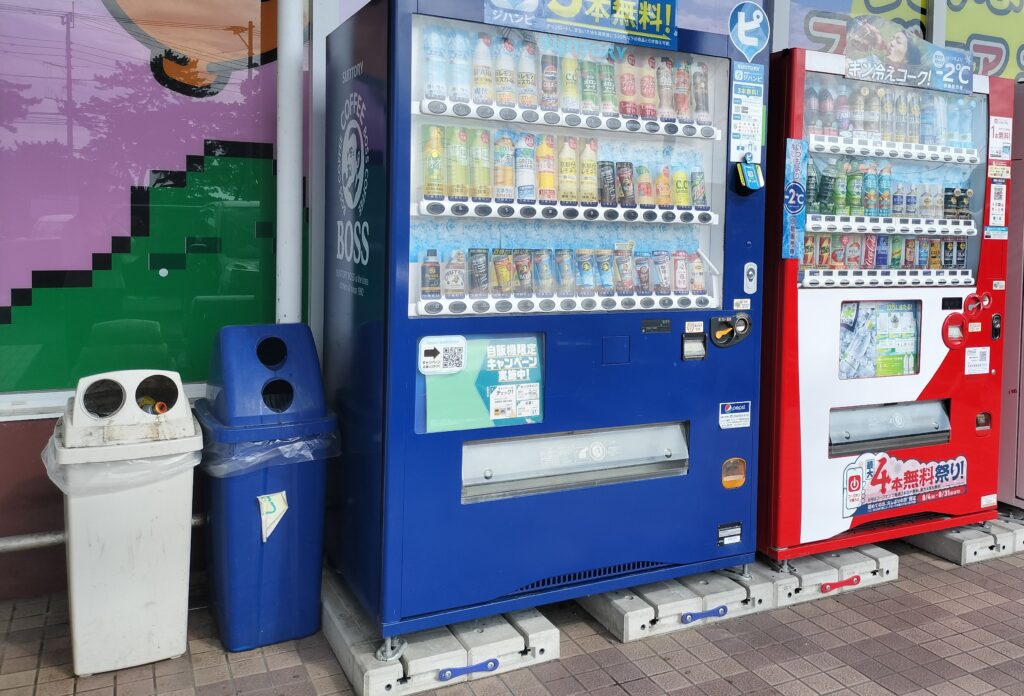
Recycle Box♻
These are places you can often find in supermarkets and shopping malls where you can drop off washed and dried plastic bottles, glass bottles, cans, and food trays. They look similar to regular trash cans, so be careful not to accidentally throw away dirty trash. Putting dirty items in a recycling box is a major violation of the rules.
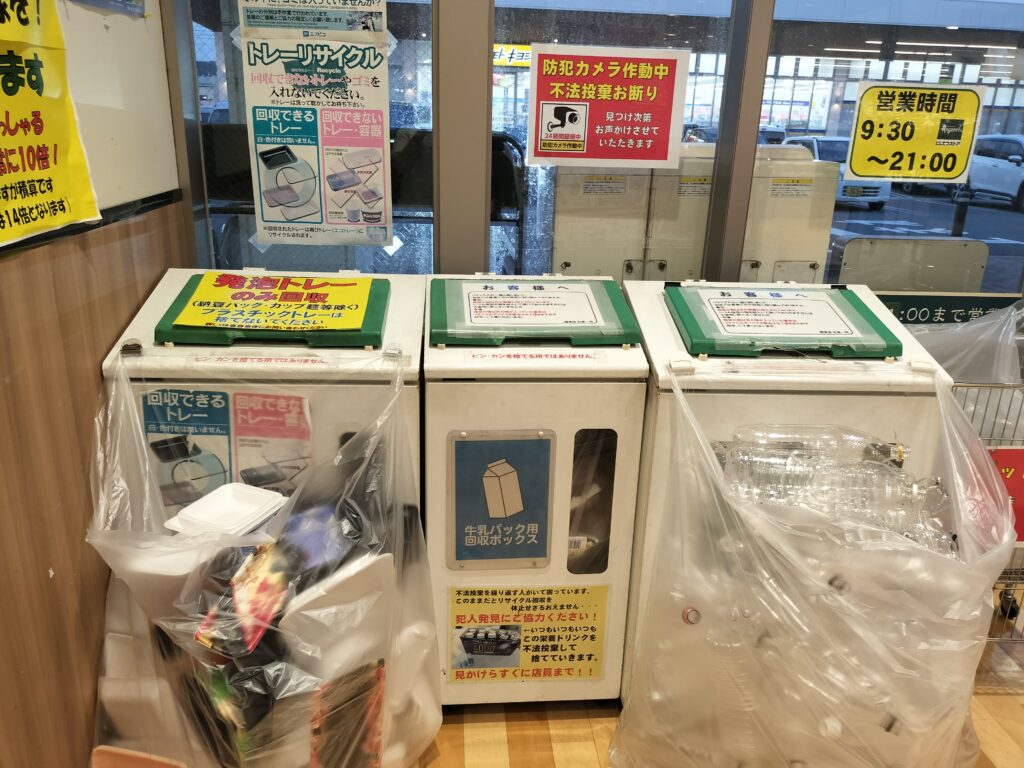
Umbrella bag collection box🌂
This is a trash can specifically for throwing away umbrella bags, placed at the entrance of a commercial facility when it rains. When umbrella bags are placed at the entrance of a commercial facility when it rains, it is common to put a wet umbrella in the bag and carry it around inside the store. This can easily be mistaken for a regular trash can, but it is against the rules to throw away any trash other than umbrella bags. This is placed there solely for umbrella bags.

Sorting category Japanese notation🔥
Even within the same category, Japanese uses a mixture of kanji, hiragana, and katakana, so the spelling may be slightly different. Therefore, we have compiled the basics of how each category is spelled in Japanese for your reference.
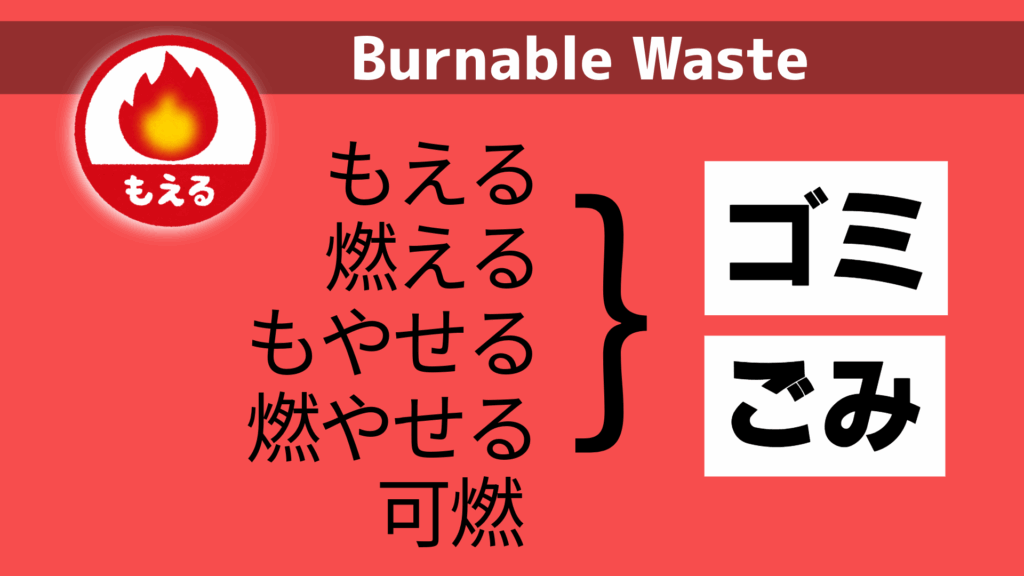
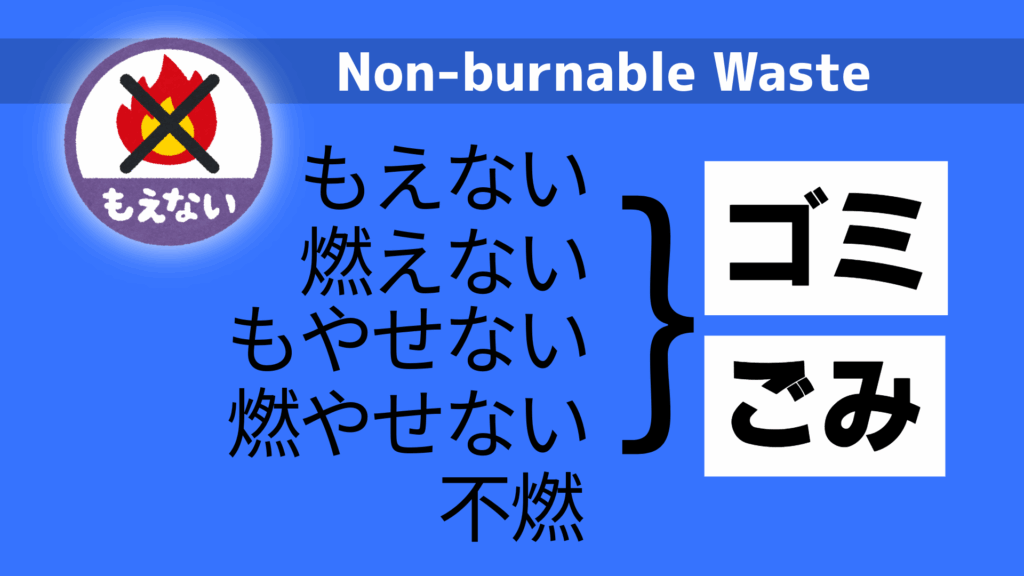
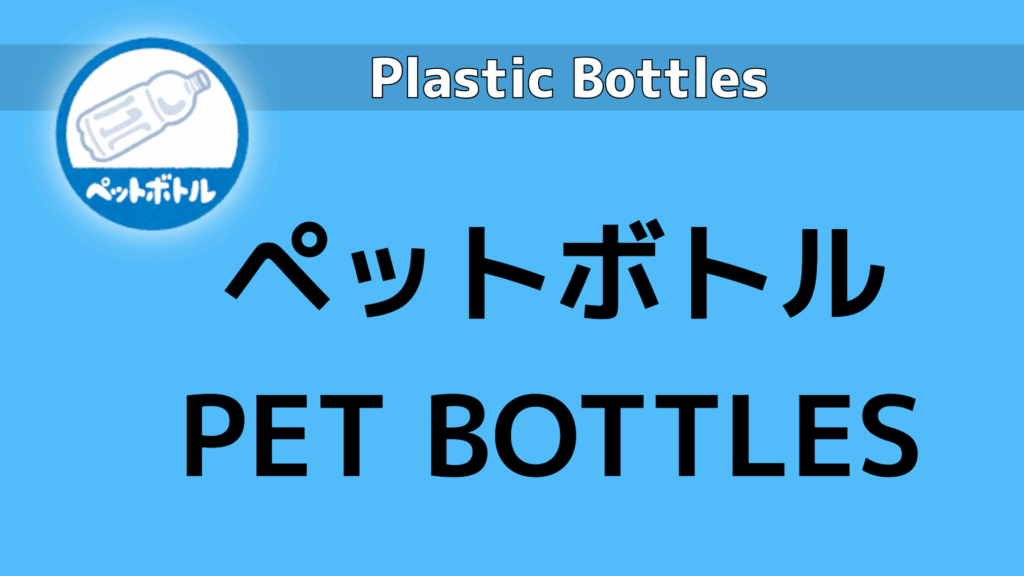
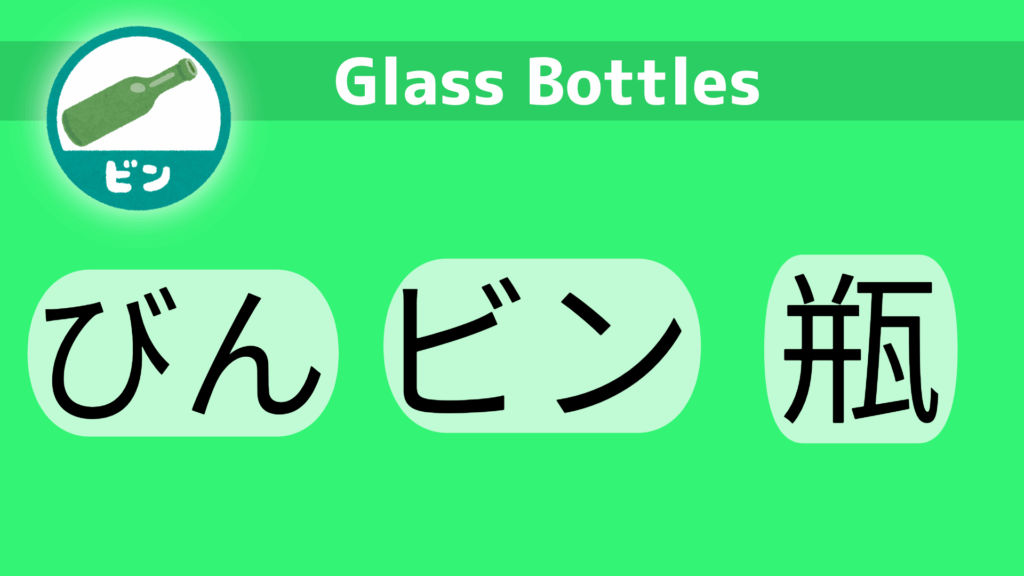
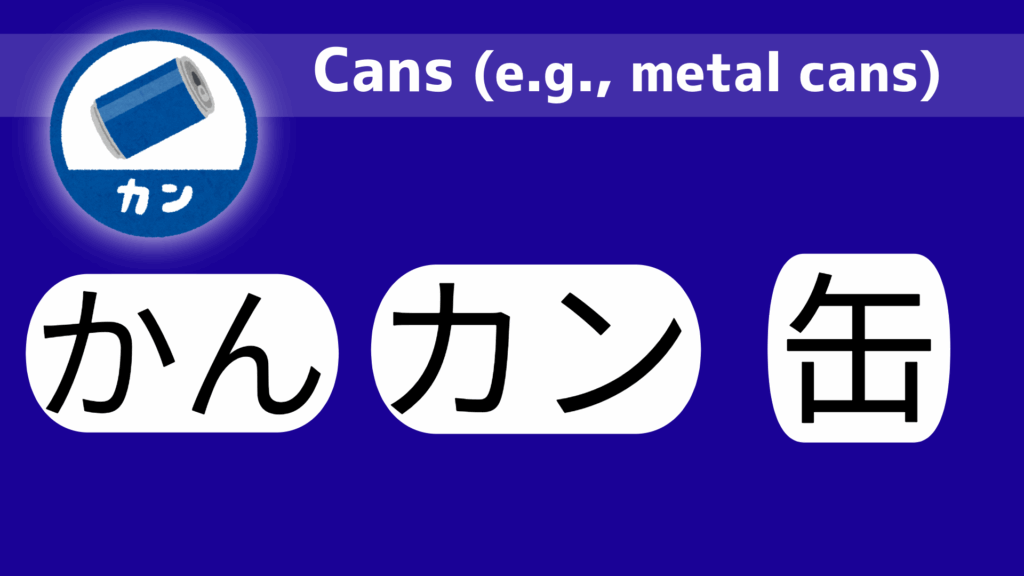

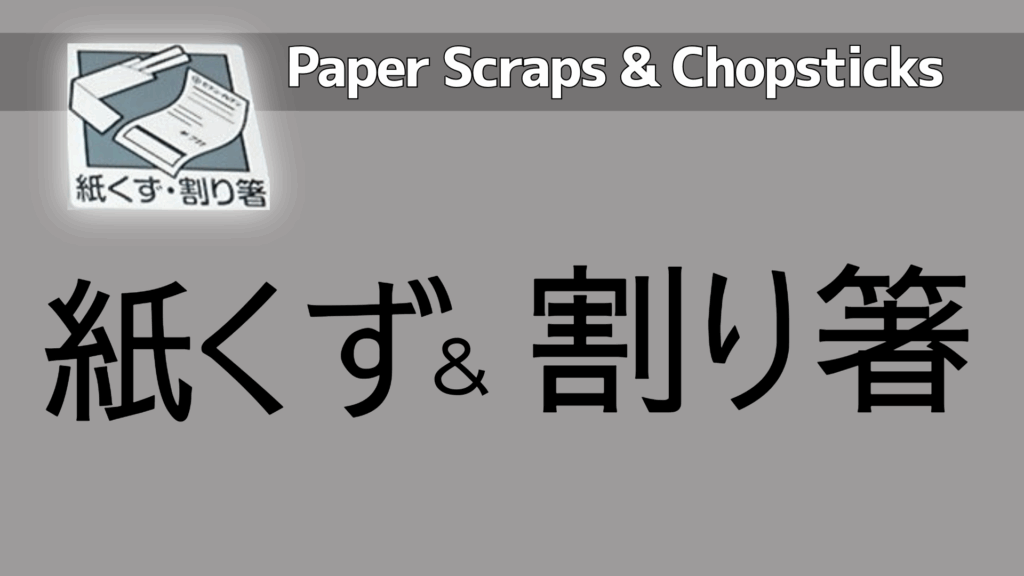
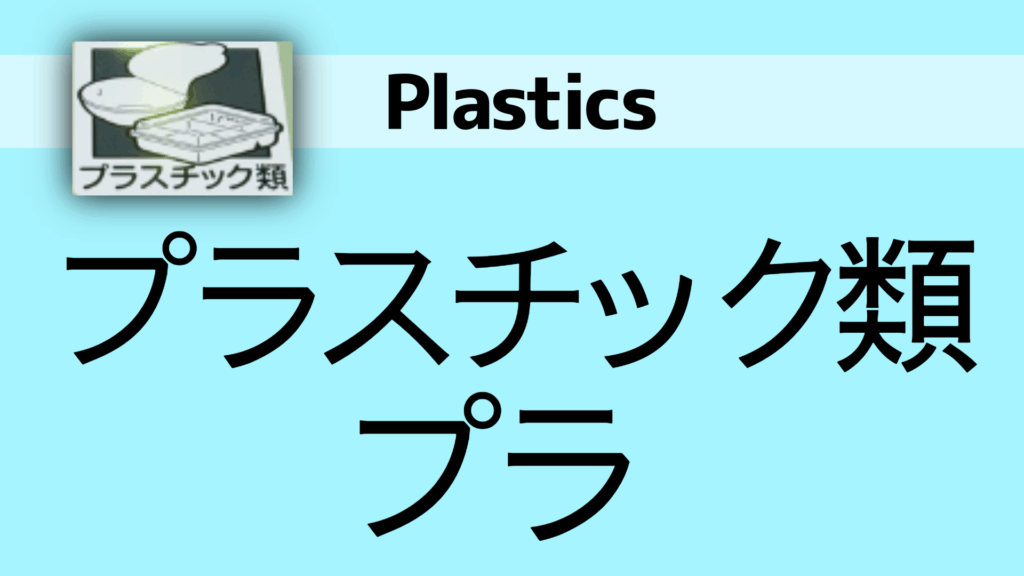
A look at littering and a message to foreign tourists
Littering is prohibited by law in Japan, so be mindful of the looks you get from local residents.
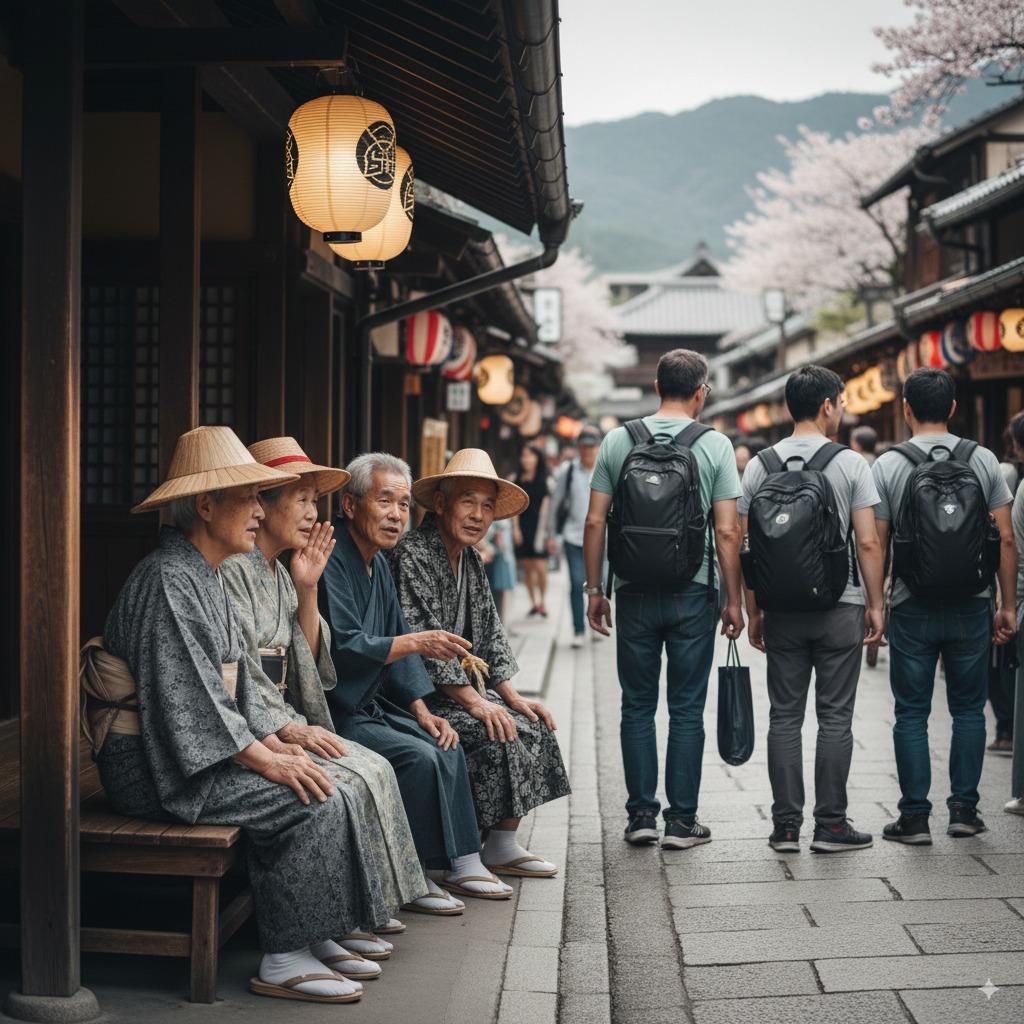
The illegality of littering 🚯
First, it’s important to note that littering is illegal in Japan, but the chances of actually being arrested are extremely low.
However, that doesn’t mean you can just say, “Well, it’s okay!” The way locals view you is important. If a foreign tourist litters, most Japanese people will look at you with contempt. Sometimes you may even be warned.
On the other hand, if they see a tourist following the rules of carrying their trash with them, they will think, ‘This person respects Japan,’ and look at you with a warm gaze.
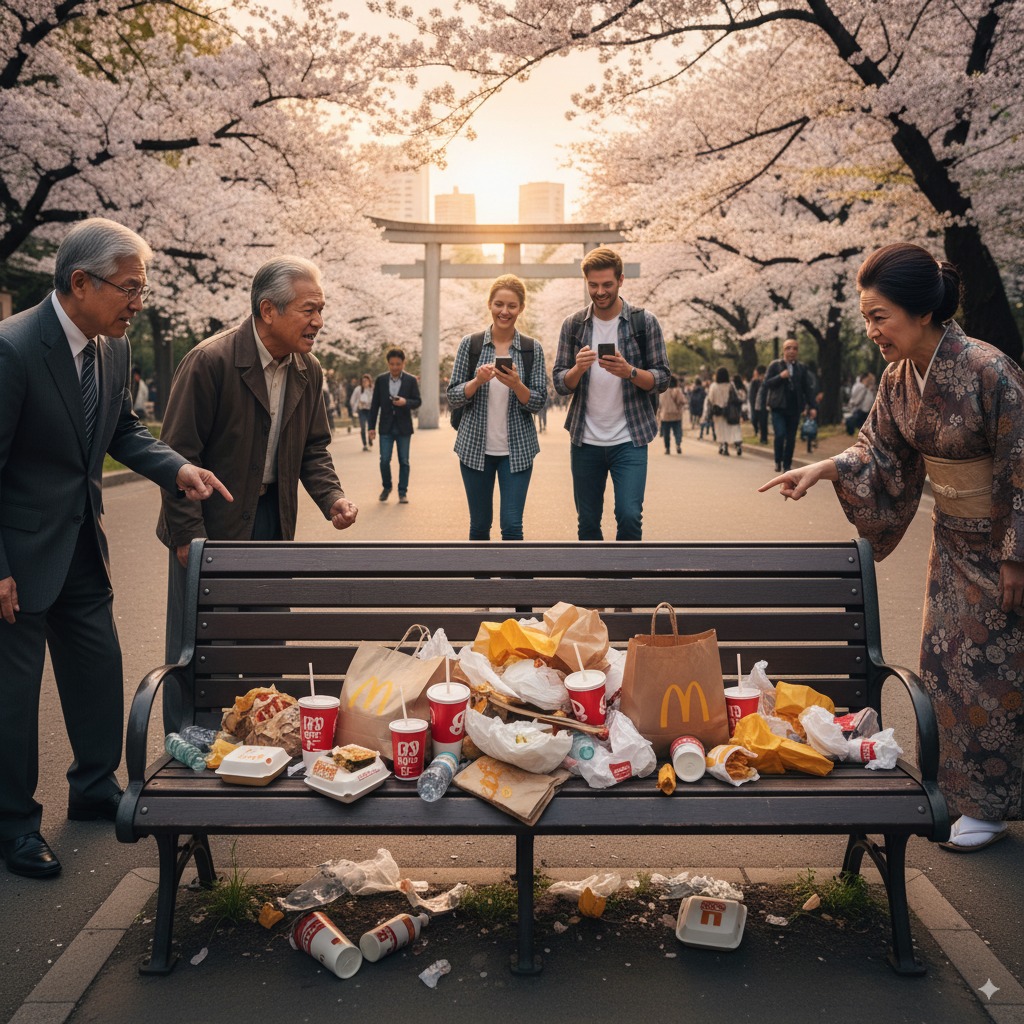
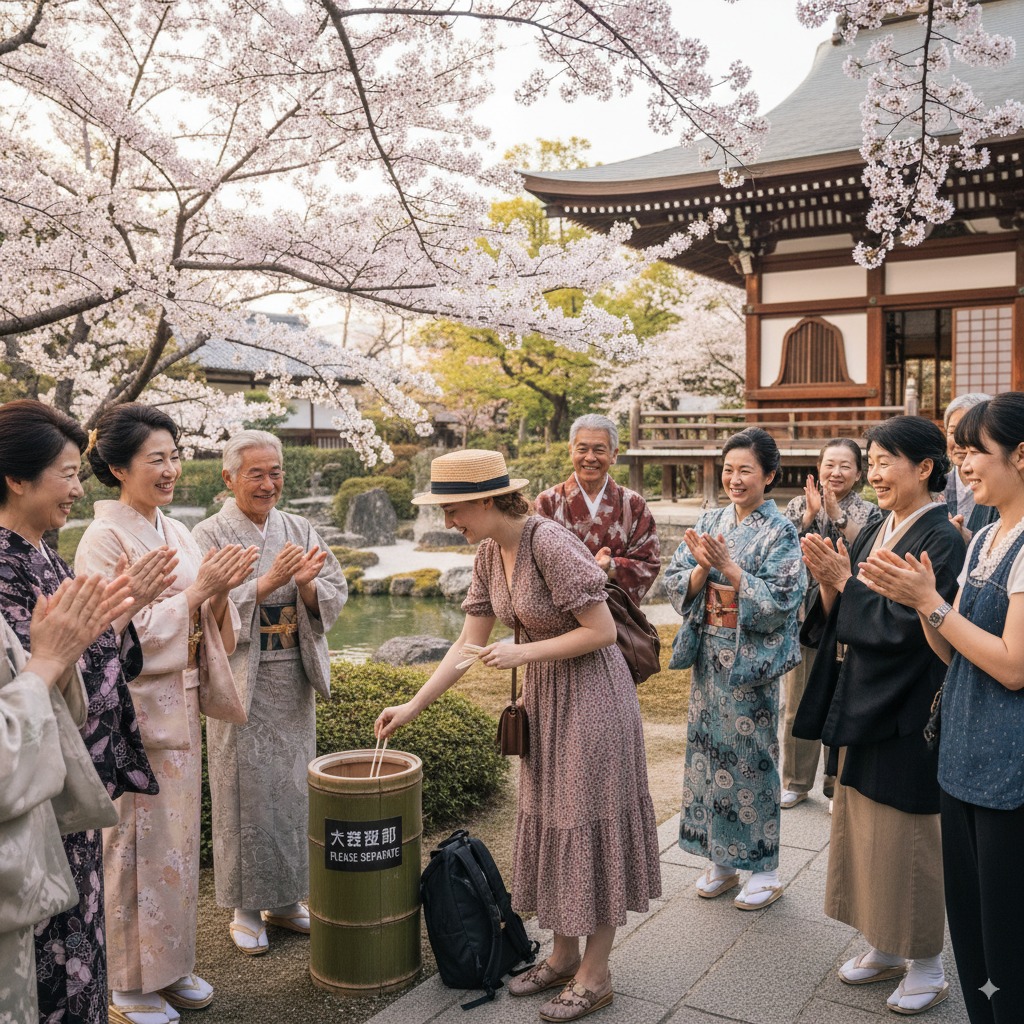
Differences in compliance with rules depending on the region🌃
To be honest, not all Japanese people follow the rules. In particular, in areas with low public safety awareness, such as central Tokyo and Osaka, Shibuya, Shinjuku, and Namba, there tends to be a high number of people who do not follow the rules. This is sometimes pointed out as being related to differences in educational levels.
However, the fact remains that “the majority of Japanese people follow the rules.”

Importance in local tourist destinations ✈️
It is especially important to be vigilant about littering in rural tourist areas, where residents have a close connection to their daily lives and rely on their tireless volunteer efforts to maintain the area.
In rural areas, foreigners’ bad manners are very noticeable, the negative impact is felt directly, and there is a possibility of significant resentment.
The negative impact of violators is so great that people across Japan, especially on social media, are increasingly calling for a “rejection of all foreigners.”
Calling on tourists to choose
Do you want to be a tourist who is welcomed by the majority of Japanese people, or a tourist who is despised? You are asked to be aware of this choice and act accordingly.
If you love Japan and respect Japanese culture, we strongly recommend that you do not follow the example of the few who break the rules.
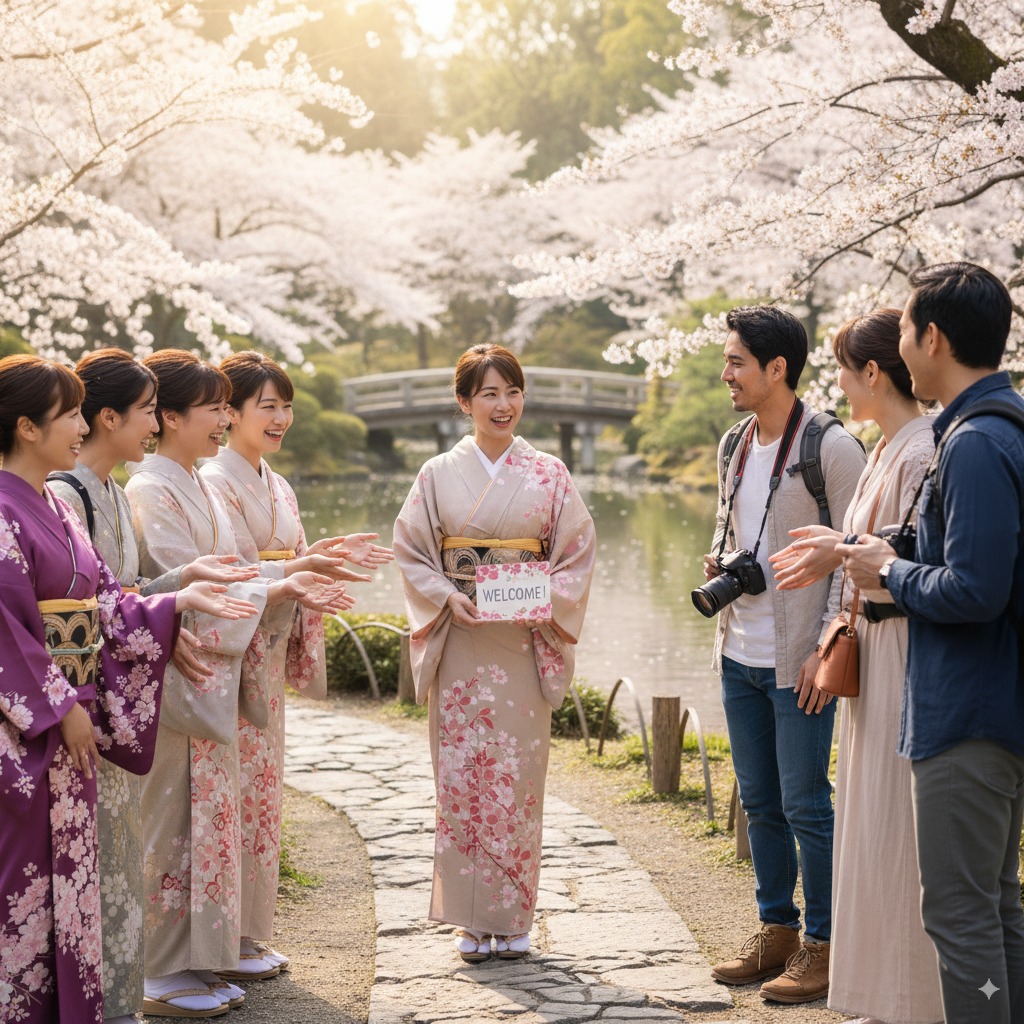
Collaborating for sustainable tourism 🙏
The garbage problem is a challenge that cannot be solved by the government alone, and the understanding and cooperation of foreign tourists is essential.
Government challenges and limitations
Some say that the government should install more trash cans, but installing and maintaining them is very expensive, making it difficult for local governments with limited financial resources.
The introduction of IoT trash cans called “SMAGO” has also begun, but in regions that have become tourist destinations due to temporary social media trends, it is impossible to predict how long tourism will continue, and measures using tax money will take time and money.
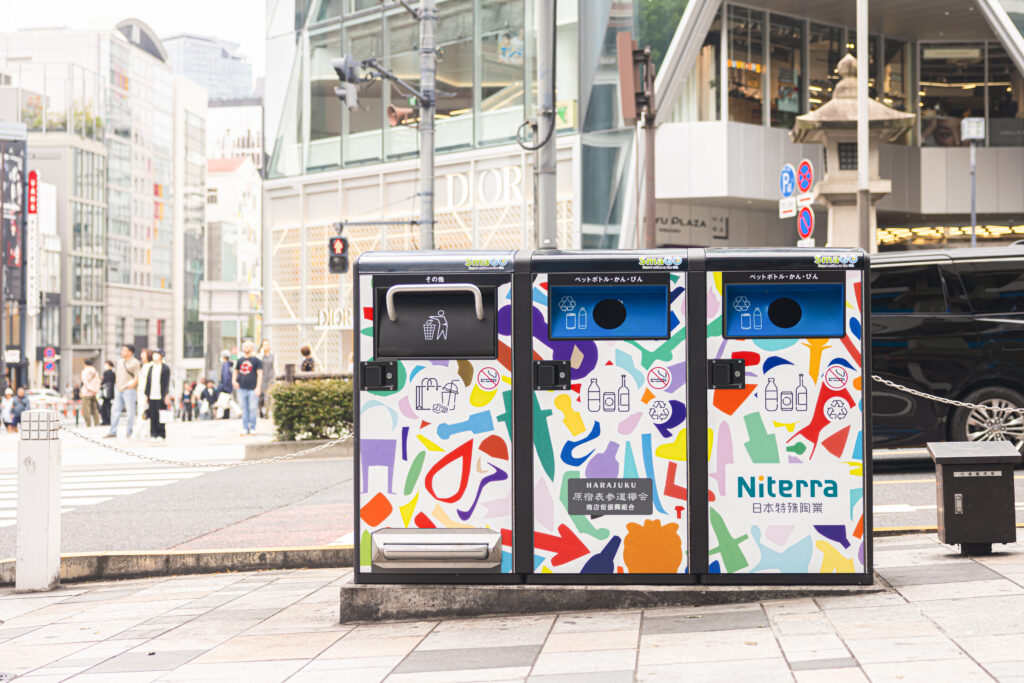
What I want to say to foreign tourists:
This situation is not one that can be resolved quickly, so understanding and cooperation from foreign tourists is essential until a breakthrough solution is put in place.
Until then, please cooperate with the Japanese custom of taking your trash home with you 🙏
Japan’s clean cities are the result of decades of hard work by the Japanese people, but now this legacy is crumbling. The more foreign tourists visiting Japan, the more cooperation we need to protect these clean cities. Thank you in advance.


summary
Japan’s clean streets are supported by the long-standing culture of “take your trash home” among its citizens, and by continuous education at school and at home. The lack of public trash bins is not simply an inconvenience, but the result of past issues and current policies. When foreign tourists visit Japan, understanding this cultural background, following the rules for waste disposal (especially sorting), and taking their trash home if they cannot find a bin will be welcomed by Japanese people and contribute to sustainable tourism. In rural areas in particular, even greater consideration is required, as individual breaches of etiquette can have a significant impact on local communities. We appreciate your understanding and cooperation!
⚠️Notes ⚠️
The original Japanese text has been translated using AI. Please forgive any unnatural expressions. Thank you for viewing.



コメント